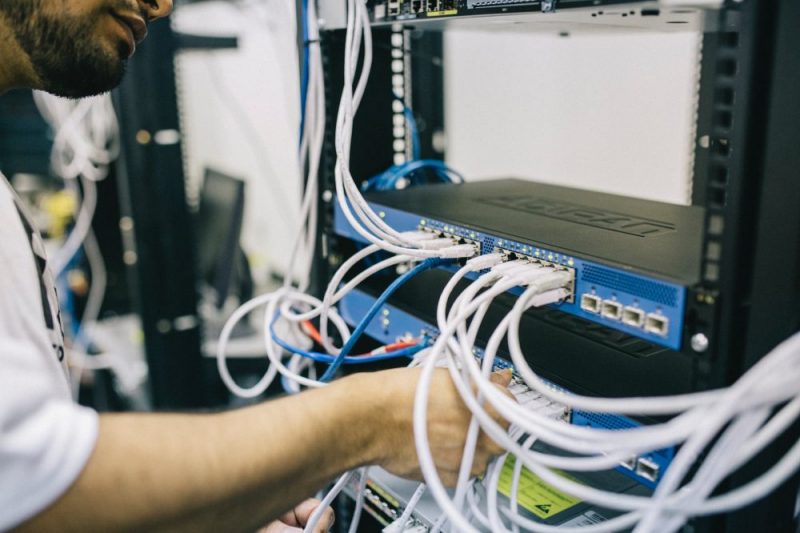
Why The Cloud Is More Secure Than On-Premises Data Centers
Moving your data and operations to the cloud is often described as a means of improving scalability, reducing infrastructure costs, and making it easier to stay updated. However, the implications for security can be a major concern for businesses, especially if you prefer to be in charge of your own security infrastructure.
Cloud Security Myths Debunked: Why Cloud Providers Can Be More Secure Than Hosting Your Own Data Center
Is migrating your data to the cloud less secure than a data center located on-premises? In general, moving to the cloud is actually more secure than doing everything in-house! In this article, we explore why the cloud is in fact more secure, and talk about the specific advantages of moving to cloud infrastructure.
What Makes The Cloud More Secure?
Let’s first define what we mean by “cloud” in this context.
The cloud is an abstracted set of computational and data storage resources, which are available on demand. Clouds dynamically allocate these resources to users as needed, allowing them to host applications and transfer data from any authorized devices that can access the Internet. Clouds may come in private form, where they’re hosted on company premises, or in public form, where multiple companies share the resources of a cloud service provider.
An on-premises private cloud is still accurately considered a cloud. However, in practice, this is not very different from an on-premises data center, as your company is still in charge of setting up the cloud’s security. For this article, we consider the cloud to be an off-site cloud service provider whom you contract to provide software, data storage, and other services over the Internet.
Cloud service providers host applications and store data on large shared data centers, which are all kept up to the same high standards of security. These high standards are what make the cloud a much safer place for your data, and to achieve them, cloud providers have several tricks up their sleeve.
Expertise
Even if you have a highly skilled dedicated IT team for your company’s network, it’s unlikely that they’ll have the same security expertise as a team of cybersecurity pros. These professionals have spent their careers learning how to avoid and defeat cyberattacks, securing client data, and setting up airtight networks.
Large cloud providers may have hundreds of these professionals with literally thousands of man-years of combined experience. All this expertise goes into ensuring the security of their network. This is one area that almost no IT department can match.
Updates
One of the advantages of using a cloud provider is that you never need to worry about software updates, as these are performed by your provider automatically. You can rest assured that you’ll always be running the latest version of your applications and security layers. This means that you’re also secured against the latest exploits and security flaws that older versions may be vulnerable to.
Physical Security
Physical security – protecting who has access to the actual hardware that hosts the cloud – is equally important to the integrity of a data center. Once an intruder has gained physical access to hardware, it becomes vastly easier to intercept and steal data.
The biggest cloud providers go the distance when it comes to physical security. They maintain 24/7 security teams who keep a watchful eye over their data centers, set up surveillance cameras, and even design their buildings with limited entry and exit points. The server rooms themselves have extensive access control systems that only allow certain employees to gain access to server rooms. Every activity is audited and logged with the identity of every person who enters the room.
While having your data physically located on your company premises may feel reassuring, it’s hardly a guarantee for security. To even approach the security levels of a cloud data center, you need to invest enormous resources in maintaining around-the-clock teams, setting up access points, and tightening the overall security of your company premises.
Disaster Management
Protection from hackers and intruders isn’t the only definition of “security.” Your data should also be protected against natural disasters such as fires and earthquakes. Keeping all of your data in one place runs the risk of total loss if your company premises are struck by such a disaster. And even if you have offsite backups, it may take hours or even days to rebuild, resulting in expensive downtime.
With cloud providers, data centers are distributed all over the world, and there’s no single point of failure that can cause a disastrous shutdown. In fact, your company might never even notice if one cloud data center is disabled – oftentimes, the provider can seamlessly move your session to another data center with updated backups.
The Cloud’s The Limit
Every cloud provider has its own strengths and weaknesses. Naturally, you should choose carefully and research their security practices and features before you pull the trigger. But in general, choosing the cloud is a safer choice than hosting your own data centers. And in the long run, it may even be cheaper and more convenient.
Looking to take the next step towards cloud migration? We’ve got you covered. Contact Network Coverage now for a free consultation and let’s work together to find a cloud solution for you. Our cloud services offer convenience, scalability, cost-effectiveness, and security for your applications and data, and you can get started in no time at all.

